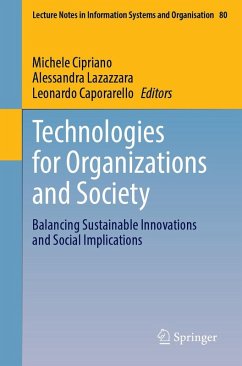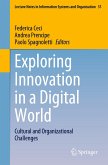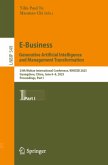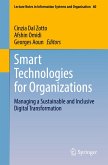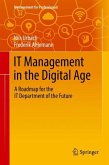In today s rapidly evolving landscape, digital technologies are reshaping socio-economic and organizational structures. This book explores how the interaction between digital systems and ecosystems is redefining organizational models and influencing decision-making processes across various domains.
It investigates the role of digital technologies such as Artificial Intelligence (generative and non-generative), blockchain, virtual reality, big data, and the Internet of Things (IoT) in shaping new organizational scenarios and examines their impact on sustainability, human resource management in hybrid and gig work, cybersecurity, and the evolution of business models toward a circular economy.
Key topics include digital maturity, knowledge management, algorithmic transparency, digital skills, and data visualization by adopting a multidisciplinary lens and multi-method approaches. Empirical analyses, case studies, and conceptual frameworks provide insights into the challenges and opportunities of digitalization across diverse sectors, including public administration and the non-profit organizations.
The plurality of perspectives makes the book particularly relevant for scholars, professionals, and organizations seeking to understand digital transformation and leverage digital ecosystems to navigate complexities and develop innovative strategies. It is based on revised versions of selected double-blind peer-reviewed papers presented at the annual AIS Italian Chapter conference in Piacenza, Italy, in October 2024.
It investigates the role of digital technologies such as Artificial Intelligence (generative and non-generative), blockchain, virtual reality, big data, and the Internet of Things (IoT) in shaping new organizational scenarios and examines their impact on sustainability, human resource management in hybrid and gig work, cybersecurity, and the evolution of business models toward a circular economy.
Key topics include digital maturity, knowledge management, algorithmic transparency, digital skills, and data visualization by adopting a multidisciplinary lens and multi-method approaches. Empirical analyses, case studies, and conceptual frameworks provide insights into the challenges and opportunities of digitalization across diverse sectors, including public administration and the non-profit organizations.
The plurality of perspectives makes the book particularly relevant for scholars, professionals, and organizations seeking to understand digital transformation and leverage digital ecosystems to navigate complexities and develop innovative strategies. It is based on revised versions of selected double-blind peer-reviewed papers presented at the annual AIS Italian Chapter conference in Piacenza, Italy, in October 2024.

